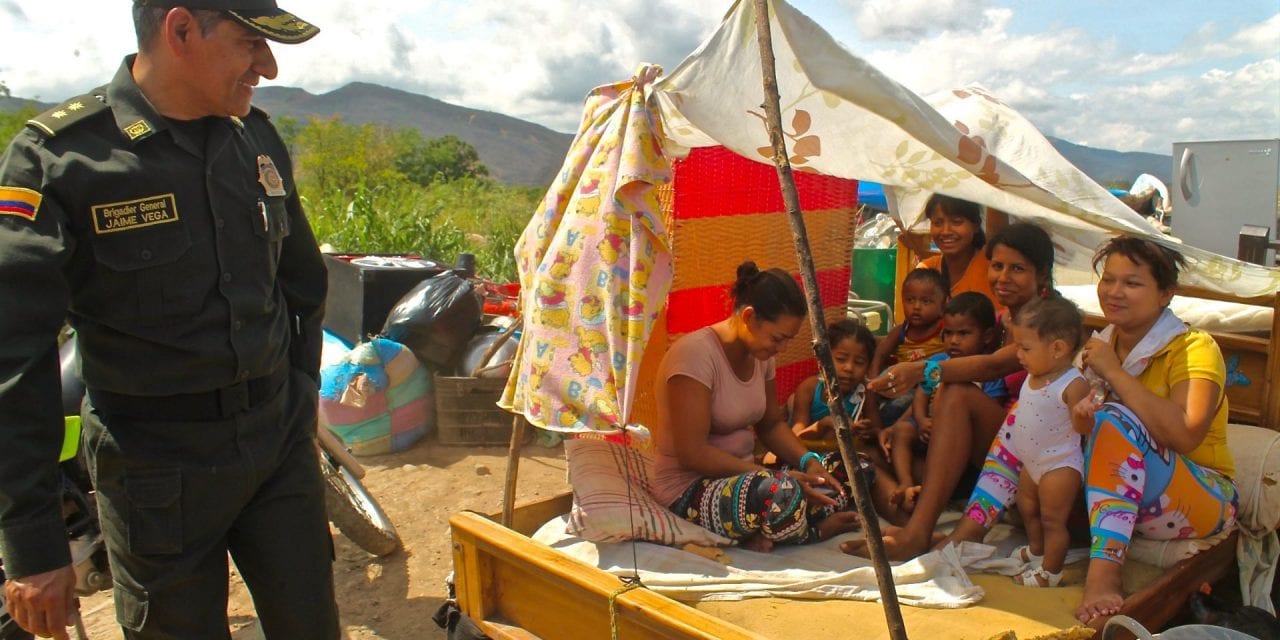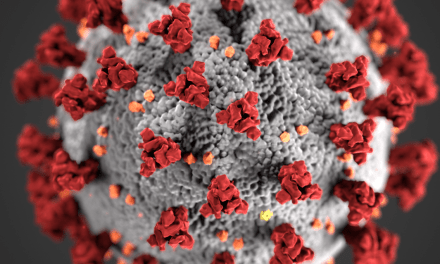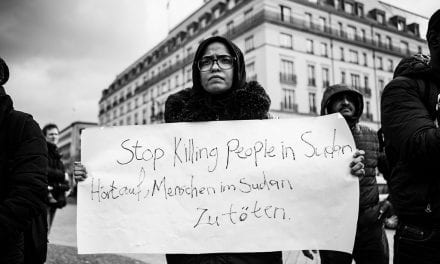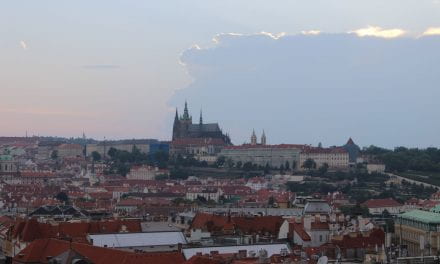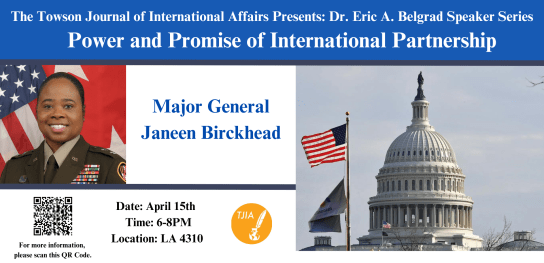By: Connor A. McNairn*
Venezuela, a once rich and powerful Latin American state sitting on the world’s largest oil reserves, presently serves as a compelling case study in the vulnerabilities of petrostates and the consequences of poor governance. Venezuela’s oil richness, first discovered nearly a century ago, paved a path for the country’s rapid economic boom and consequent collapse.[1] Although President Hugo Chavez (1999-2013) largely reinvigorated the Venezuelan economy through socialist programs and government restructuring, these successes proved short-lived and unsustainable, while the mismanaged and encroaching governing styles espoused by Nicolas Maduro (2013-present) have since showcased the dangers of bloated executives and seemingly limitless presidential authority.
Overextensions of executive power have had real-world consequences. While three-quarters of the country’s citizens have lost an average of 19 pounds due to widespread hunger, crippling inflation continues to devastate the state’s economy.[2] Moreover, President Maduro has consistently relied on strongman tactics to jail political opponents and delegitimize the elections of lawmakers, prompting the president of the state’s National Assembly, Juan Guaido, to claim control over the presidency.[3] As a result, the international community is faced with a challenging predicament: to what degree should states intervene in the growing humanitarian crisis in Venezuela? For the United States – a country with a long and ugly history of meddling in broader Latin America – intervention in Venezuela must only come in the form of diplomatic assistance from afar, as direct military or forceful intervention has historically, and would contemporarily, make matters worse. Moreover, increased domestic pressure within Venezuela will likely lead to the removal of the incumbent President Maduro. Whether the Trump administration will be able to conduct a measured form of diplomacy with Venezuelan opposition leaders and like-minded states throughout the world, however, is an entirely different question.
Venezuela before Maduro
To those newly aware of the growing crisis in Venezuela, the realities of the state’s former economic strength and social stability may come as a surprise. In fact, during the Chavez presidency, Venezuela’s economy and social programs were largely transformed, as unemployment and poverty rates were cut in half, income per capita rates were multiplied by two, literacy drastically improved, and infant mortality rates fell substantially.[4] It is important to note that such successes in Venezuela were not achieved through liberal policy or enhanced democratic opportunity; rather, Chavez found his success by nationalizing industry and reinvesting government money into social programs. Regardless of his methods, the Venezuelan people loved President Chavez, specifically those among the poor and working class.[5]
In addition to pursuing bold economic strategies, President Chavez also fundamentally restructured communications, television, and the general constitutional framework of the state. Because Venezuela lacks the institutional stability of a healthy democratic state, in an attempt to expand his power and control throughout the state, Chavez loaded the state oil company (Petróleos de Venezuela, S.A., or PDVSA) with loyalists, pushed state television, and attempted to reduce the influence of private communication through utilizing the judiciary.[6] In short, Chavez capitalized on his short-term economic successes to earn Venezuelans’ approval of expanded governmental control. But when a state solely relies on its ability to nationalize oil – a commodity at the mercy of global oil prices – to drive social and economic change, it is therefore subject to downfalls as grand as previous successes. Such is the case for Venezuela.
During Chavez’s presidency, initial oil prices proved promising for the state’s economy, motivating Chavez to nationalize private oil fields and use excess revenues to bolster social programs. At its peak, PDVSA enjoyed oil profits as high as 126 USD/barrel in 2008.[7] After instituting loyalists on the PDVSA board, fully nationalizing oil exploration and production, and seizing assets from competing oil companies such as Exxon Mobil and ConocoPhilips, Chavez adequately strangled any hopes of oil expansion or growth within the state that was not state sanctioned. When global oil prices dipped, so, too, did the revenues for the state’s predominant economic driver. And when millions of Venezuelans rely on plummeting oil prices as a means of social and economic security, disaster ensues.[8] It was within this chaotic context that Nicolas Maduro, Chavez’s vice president, assumed office in 2013 following Chavez’s death.
Venezuela and Maduro
In many ways, the leadership styles of Hugo Chavez and Nicolas Maduro are similar. Each have relied substantially on authoritarian practices, including the restriction of free journalism and corruption in business and politics. Yet, for Chavez, electoral victory was constant, as he and his policies won 13 of 14 national elections.[9] Chavez also maintained popularity among the people and saw his electoral legitimacy as key to national expansion. Oppositely, Maduro has been unable to sustain the popularity of his predecessor.
After Chavez’s death, Venezuela held a special presidential election. While Maduro, who was hand-picked by Chavez to carry on his legacy, campaigned to align himself with the former icon, his opponent, Henrique Capriles, who ran against the platform of the former president, nearly defeated Maduro. The final percentages rested at 50.6 percent for Maduro and 49 percent for Capriles.[10] In 2013, in other words, Maduro was already off to a shaky start.
After assuming power, Maduro largely continued the policies of Chavez, but as global oil prices continued to plummet, the Venezuelan economy grew increasingly unstable. Since 2014, just one year after Maduro assumed the presidency, Venezuela’s inflation rate has consistently exceeded 50 percent and, in 2017, reached 536.2 percent.[11] Food shortages, many of which are caused by pricing inconsistencies (determined by the government), have left hordes of hungry citizens scavenging local rivers and crossing into Colombia to find food.[12] Growing debts, increasing crime rates, and decreasing oil output have also contributed to the dire situation in the state.
But Maduro’s response to these mounting issues has failed to mitigate the chaos. Through the judiciary, Maduro oversaw the Supreme Court’s suspension of legislative elections in 2016 that would have bolstered opposition parties. When legislators held the elections regardless of the judicial mandate, the Venezuelan Supreme Court declared that the National Assembly’s future decisions would be null.[13] And in perhaps its most dramatic move, in March 2017, the Supreme Court actually dissolved the National Assembly, effectively eliminating Maduro’s opposition in the legislature and removing opportunities for political pushback against his autocratic approach to governing.[14] Since the Court’s takeover of the legislature, Venezuelans have flooded the streets in protest, regularly clashing with Venezuelan military and law enforcement.
Presidential Challenge and America’s Role
President Maduro was re-elected to a second presidential term in May 2018, which earned him sharp boycotts from opposition leaders. Following the election, Venezuela’s National Assembly did not recognize President Maduro’s victory, as it categorized the election as “corrupt,” thus identifying Maduro as a “usurper.”[15] In Venezuela’s constitution, specifically within articles 233 and 333, the leader of the National Assembly is to assume the presidency if the acting president is re-elected by corrupt means. Juan Guaido, president of the National Assembly, pursuant to articles 233 and 333, declared himself president of Venezuela January 23, 2019. Guaido’s declaration was met with immediate diplomatic support from many states abroad, including the United States.[16] As the faceoff between Guaido and Maduro continues to unfold, the United States remains relatively removed from the situation. The Trump administration has publicly supported the interim presidency of Juan Guaido and has spearheaded the imposition of sanctions on the state.[17] That said, Maduro and the Venezuelan military continue to block critical aid to the state’s most vulnerable, effectively challenging the multiple states in the international community attempting to mitigate the suffering in the state.
In sum, the United States has remained fairly poised in its approach to the multiple crises in Venezuela. But given President Trump’s recent comments on the Venezuelan military, which included vows that it would “lose everything” if it continued to support Maduro, it is unclear whether the Trump administration is willing to pursue potential military ventures in the state.[18] And in late January, President Trump’s National Security Advisor, John Bolton, alarmed reporters when his legal pad read“5,000 troops in Colombia” at a press briefing.[19] Although President Trump has not telegraphed any specifically aggressive moves in the region, his broader disregard for diplomatic norms, paired with the hawkish approaches to foreign policy espoused by his national security and foreign policy teams, gives cause for concern in the increasingly dire Venezuelan crisis. What is certain, however, is that former U.S. intervention in the region was terribly unsuccessful; similar approaches in the modern context would exacerbate an already inflamed international situation, likely creating increased violence and suffering among Venezuela’s most vulnerable.
[1] Rocio Cara Labrador, “Venezuela: The Rise and Fall of a Petrostate,” Council on Foreign Relations, last modified January 24, 2019, https://www.cfr.org/backgrounder/venezuela-crisis
[2] Zeehsan Aleem, “How Venezuela went from a rich democracy to a dictatorship on the brink of collapse,” Vox Media, last modified September 19, 2017, https://www.vox.com/world/2017/9/19/16189742/venezuela-maduro-dictator-chavez-collapse
[3] Zeeshan Aleem, “How Venezuela went from a rich democracy to a dictatorship on the brink of collapse.”
[4] Zeeshan Aleem, “How Venezuela went from a rich democracy to a dictatorship on the brink of collapse.”
[5] Zeeshan Aleem, “How Venezuela went from a rich democracy to a dictatorship on the brink of collapse.”
[6] Victor Bulmer-Thomas, “Analysis: How Hugo Chavez changed Venezuela,” BBC News, last modified March 6, 2013, https://www.bbc.com/news/world-latin-america-15240081
[7] Wharton University of Pennsylvania Public Policy Initiative, “The Legacy of Hugo Chavez and a Failing Venezuela,” last modified February 9, 2017, https://publicpolicy.wharton.upenn.edu/live/news/1696-the-legacy-of-hugo-chavez-and-a-failing-venezuela
[8] Wharton University of Pennsylvania Public Policy Initiative, “The Legacy of Hugo Chavez and a Failing Venezuela.”
[9] Greg Grandin, “On the Legacy of Hugo Chavez,” The Nation, last modified March 6, 2013, https://www.thenation.com/article/legacy-hugo-chavez/
[10] Zeeshan Aleem, “How Venezuela went from a rich democracy to a dictatorship on the brink of collapse.”
[11] Al Jazeera, “Venezuela’s crisis explained from the beginning,” last modified March 23, 2018, https://www.aljazeera.com/indepth/features/2017/04/venezuela-happening-170412114045595.html
[12] JM Lopez, “Scavenging to survive in Venezuela,” Al Jazeera, last modified October 16, 2017, https://www.aljazeera.com/indepth/inpictures/2017/09/scavenging-survive-venezuela-170903073024026.html
[13] Al Jazeera, “Venezuela’s crisis explained from the beginning.”
[14] Rafael Romo, “Venezuela’s high court dissolves National Assembly,” CNN, last modified March 30, 2017, https://www.cnn.com/2017/03/30/americas/venezuela-dissolves-national-assembly/index.html
[15] BBC News, “Venezuela crisis: How the political situation escalated,” last modified January 24, 2019, https://www.bbc.com/news/world-latin-america-36319877
[16] BBC News, “Venezuela crisis: How the political situation escalated.”
[17] Jeremy Diamond and Betsy Klein, “Trump ramps up pressure on Venezuela’s Maduro in Speech,” CNN, last modified February 18, 2019, https://www.cnn.com/2019/02/18/politics/donald-trump-venezuela-miami/index.html
[18] Andrew Buncombe, “Trump says Venezuela’s military will ‘lose everything they have’ if they continue to support Maduro,” Independent, last modified February 18, 2019, https://www.independent.co.uk/news/world/americas/trump-venezuela-speech-miami-juan-guaido-maduro-president-socialism-florida-military-a8785716.html
[19] Kathryn Watson, “Bolton seen holding legal pad with ‘5,000 troops to Colombia’ written on it,” CBS News, last modified January 28, 2019, https://www.cbsnews.com/news/bolton-holds-legal-pad-with-5000-troops-to-colombia-written-on-it/
*Disclaimer: The content contained in the following material is the sole ownership of the author and does not reflect the Towson University Journal of International Affairs nor Towson University in any respect whatsoever.

